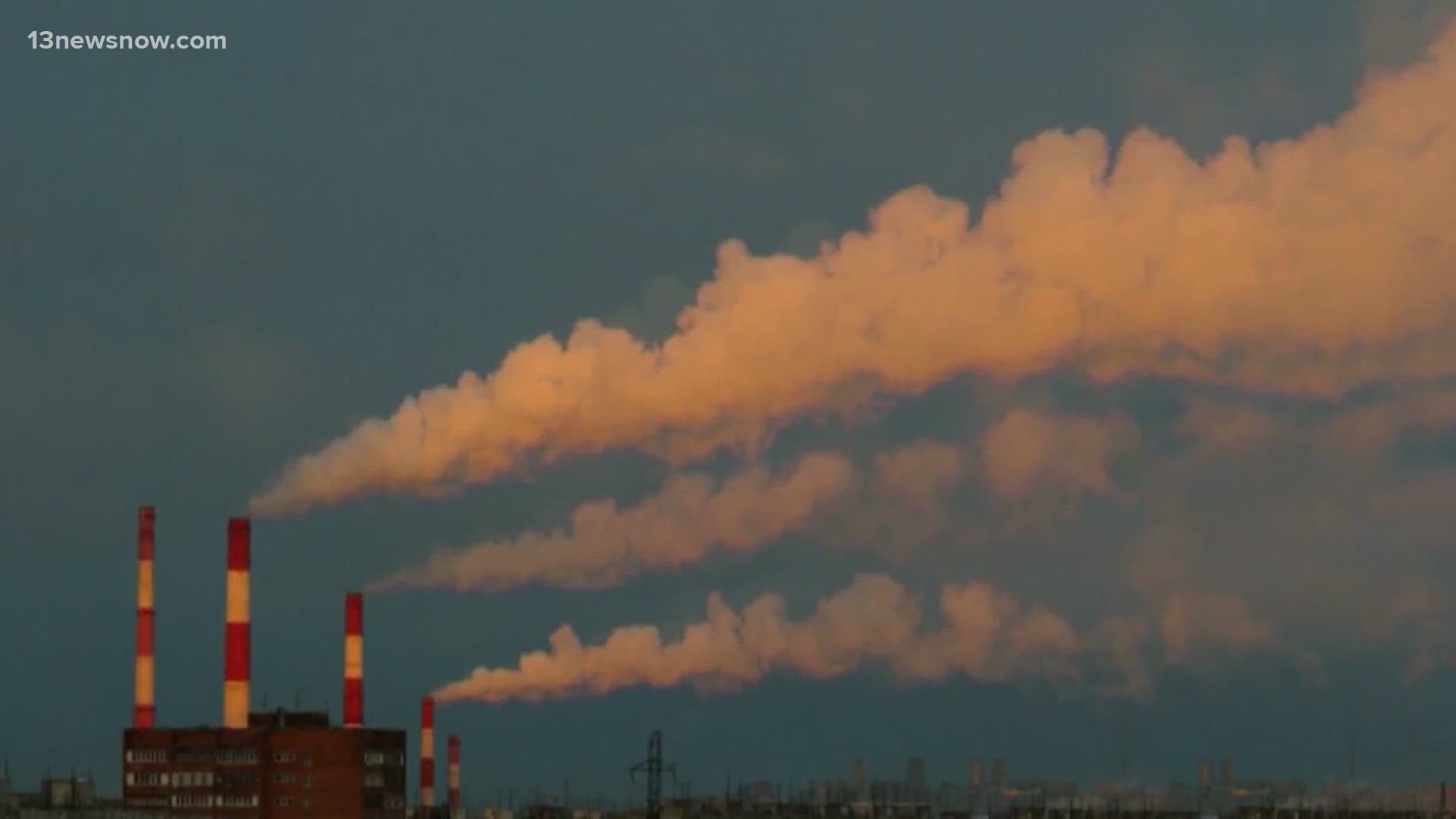NORFOLK, Va. — Several environmental groups are planning to legally challenge Virginia's withdrawal from the Regional Greenhouse Gas Initiative (RGGI), initiated by Republican Gov. Glenn Youngkin.
The groups on Monday served a notice of appeal to the Virginia Air Pollution Control Board, the Department of Environmental Quality (DEQ) and DEQ Director Michael Rolband, stating they will challenge the withdrawal in the Fairfax County Circuit Court. Virginia Attorney General Jason Miyares was listed as counsel for the appellants.
The withdrawal was done by repealing the regulation the state used to participate in the auction-based carbon emissions reduction program, which was enacted after the Clean Energy and Community Flood Preparedness Act became law in 2020.
After a months-long process that included thousands of public comments, the Air Pollution Control Board voted to approve the repeal in June. But many environmental groups and Democratic lawmakers have slammed the move as illegal, arguing the 2020 law requires Virginia to participate in RGGI.
Under the repeal, Virginia will leave RGGI on Dec. 31, 2023, which is the end of the program's control period that started on Jan. 1, 2021.
The notice came the same day the repeal was published in the Virginia Register of Regulations. It was filed by the Southern Environmental Law Center on behalf of Appalachian Voices, the Association of Energy Conservation Professionals, Faith Alliance for Climate Solutions and Virginia Interfaith Power and Light.
"Members of the Air Pollution Control Board were repeatedly informed that they did not have the authority to reverse a legislative mandate for Virginia to participate in RGGI — only the General Assembly has that authority,” Peter Anderson with Appalachian Voices wrote in a news release. “They acted anyway, ignoring the law and all of the benefits that Virginia has gained from RGGI.”
The groups have 30 days to file a petition of appeal with the Fairfax County Circuit Court to detail their specific claims.
RGGI puts a cap on carbon dioxide emissions from power plants that will get stricter over time across 11 states: Connecticut, Delaware, Maine, Maryland, Massachusetts, New Hampshire, New Jersey, New York, Rhode Island, Vermont, and Virginia.
Power companies have to acquire allowances for every short ton of carbon dioxide they emit, which are distributed at quarterly actions. During Virginia's participation, the proceeds went to energy-efficiency programs for low-income Virginians and the Community Flood Preparedness Fund (CFPF), but the withdrawal leaves their funding sources in question.
The goal with RGGI is to incentivize power companies to move toward clean energy and reduce emissions, but Youngkin has argued the program doesn't serve its purpose while acting as a tax on Virginians. He believes withdrawal via regulatory action as opposed to action by lawmakers was legal.
RELATED: 'The words are very clear' | Youngkin argues he can withdraw Virginia from RGGI under current law
In a statement provided to 13News Now, Virginia Secretary of Natural and Historic Resources Travis Voyles reiterated his belief that RGGI is a tax that doesn't do anything to reduce emissions.
"Our State Air Pollution Control Board has acted and believes that Virginia is not required to be in RGGI and that the citizens of Virginia should not be subjected to this unnecessary tax," Voyles wrote. "The Office of the Attorney General confirmed the State Air Pollution Control Board has the legal authority to take action on the regulatory proposal using the full regulatory process—and the Board voted to do just that—furthering Virginians access to a reliable, affordable, clean, and growing supply of power. Virginians will see a lower energy bill in due time because we are withdrawing from RGGI through a regulatory process."
13News Now also reached out to Miyares' office for comment on the notice but didn't receive an immediate response.

